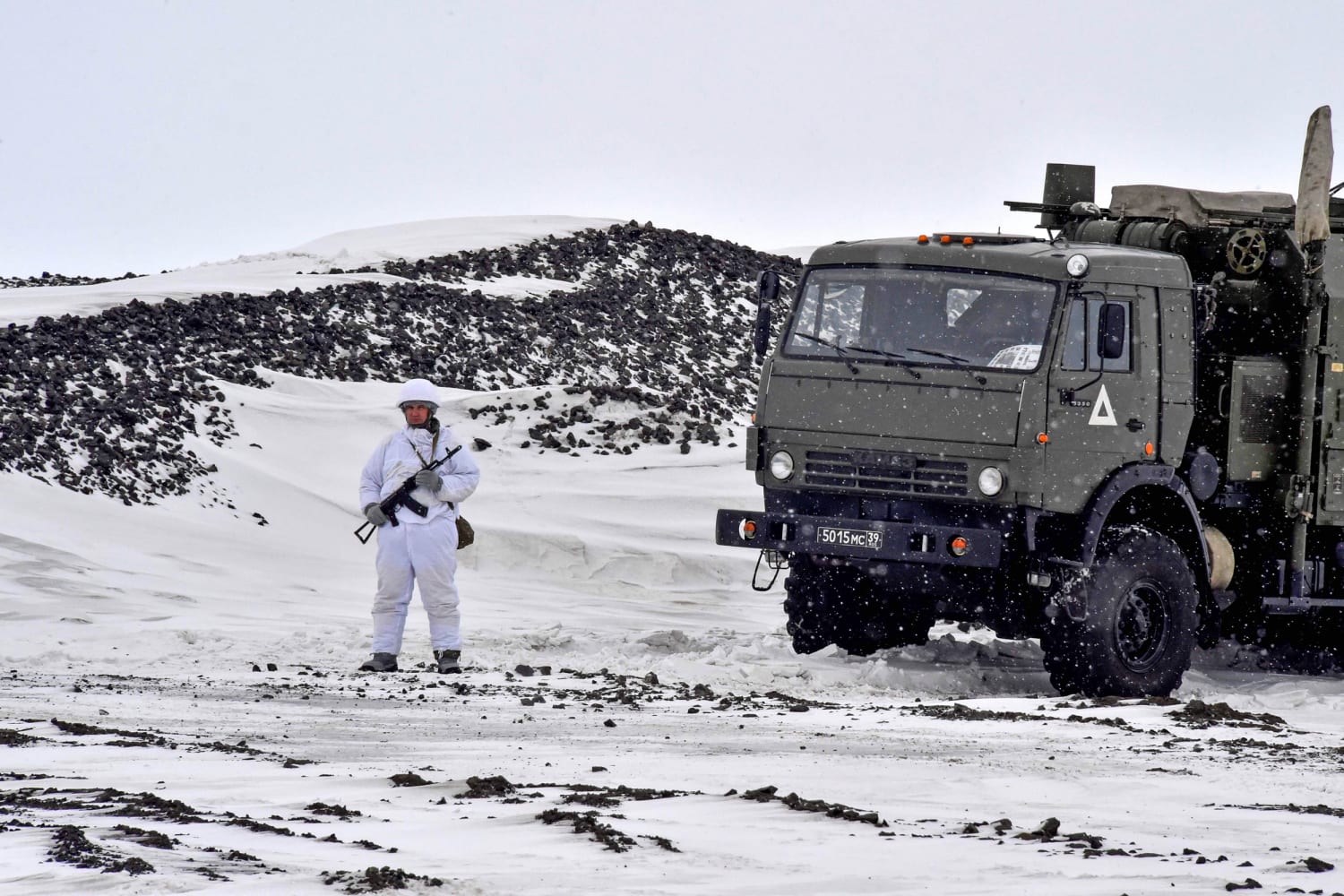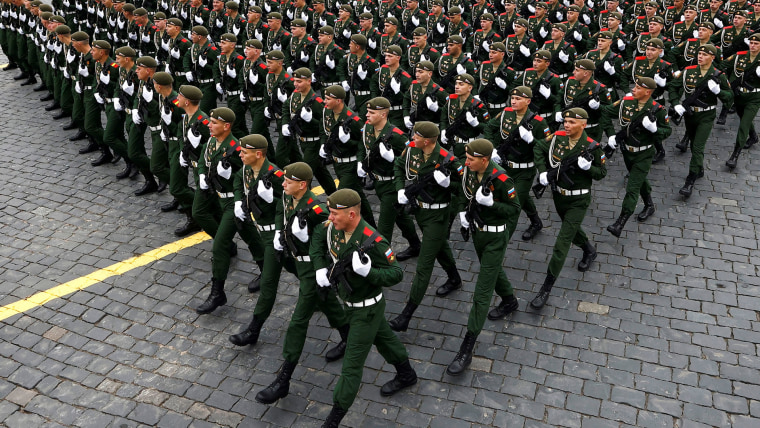MOSCOW — The first high-level meeting between U.S. and Russian officials since President Joe Biden assumed office in January will take place this week, as diplomats discuss the controversial political future of the Arctic.
Russian Foreign Minister Sergey Lavrov is set to meet with his American counterpart, Secretary of State Antony Blinken, on the sidelines of the Arctic Council ministerial meeting in the Icelandic capital Reykjavik this week.
The council is a relatively new body in international politics, intended to promote peaceful cooperation in the region. Russia is set to assume chairmanship of the council at this week’s meeting, but a growing chorus of voices in the West is accusing Moscow of aggressively militarizing the region. Lavrov on Tuesday rejected these concerns.
“We see lamentations about the fact that Russia is deploying military forces in the Arctic,” he said at a press conference in Moscow.
Download the NBC News app for breaking news and politics
“But everyone has known for a long time that this is our territory, our land. We are responsible for ensuring our Arctic coast is safe, and everything that we do there is absolutely legal and legitimate.”
Russia has made no secret of its intentions to assert itself as an Arctic power. As global warming has opened up greater possibilities for shipping routes and natural resource extraction, it has worked to develop military and coast guard infrastructure along its massive Arctic coast to protect and safeguard commercial activities.
Speaking at a press conference in Reykjavik on Tuesday ahead of the summit, Blinken underlined that the United States is concerned “about some of the increased military activities in the Arctic,” which he said makes the area more dangerous and “undermines the shared goal of a peaceful and sustainable future for the region.”
He added that he was hopeful the council would be a platform for “sustaining and even deepening peaceful cooperation in the region.”
Much of Russia’s military expansion in the Arctic region has centered on reopening and renovating Soviet-era airfields and military infrastructure. In parallel, it has been expanding coast guard infrastructure along the Northern Sea Route, a shipping lane that runs through the Russia’s Arctic that Moscow hopes can become a major trade route.
Blinken said Russia has advanced maritime claims in the Arctic that were unlawful, particularly in their regulation of foreign vessels transiting the Northern Sea Route. “That is something that we have and will respond to,” he added.
The Arctic Council meeting begins Wednesday and Blinken and Lavrov are expected to hold their bilateral meeting on the sidelines.
The Department of State said that Blinken’s goals for the Arctic Council meeting are “to advance efforts to sustain the Arctic as a region of peace, free of conflict, where Arctic Council members collaborate on shared priorities to protect the well-being of Arctic communities and address the ever-growing threat and impact of the climate crisis.”
But the Arctic Council meeting may serve a broader purpose in the troubled U.S.-Russia relationship.
The meeting comes as the White House and the Kremlin continue to discuss the prospects of a summit between Biden and Russian President Vladimir Putin somewhere in Europe in mid-June. No dates or even a location have yet been announced by either side, but the meeting between Blinken and Lavrov may be used to finalize those details.
State Department spokesman Ned Price said Friday that the U.S. is seeking a more stable, predictable relationship with Russia and that the bilateral meeting between Blinken and Lavrov will be a test to see what is possible.
“I wouldn’t want to get ahead of the conversation,” he said, “but I think you can expect it will reflect the totality of the bilateral relationship — the good, the bad, and the in-between.”
Abigail Williams contributed.
Source: | This article originally belongs to Nbcnews.com











